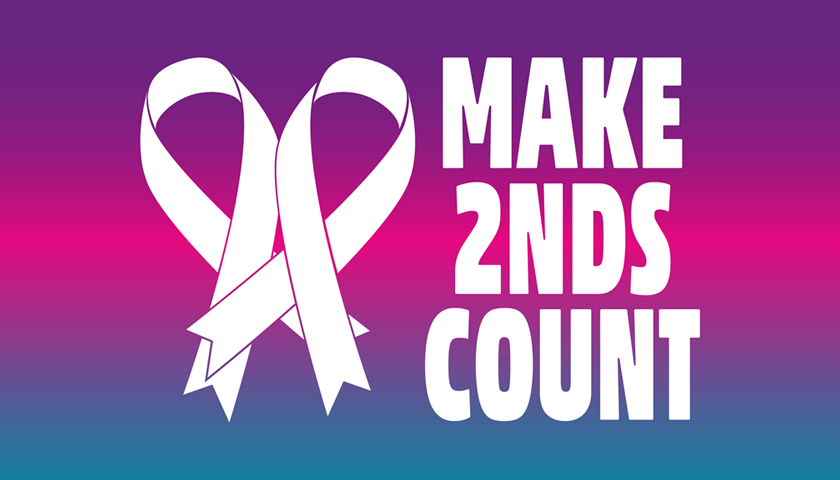New research has revealed disturbing gaps in support for patients with secondary (metastatic) breast cancer.
And this lack of help is partly to blame for magnifying the damaging impact of the incurable disease, according to researchers at Brighton and Sussex Medical School (BSMS).
The first scientific research to be funded by secondary breast cancer charity Make 2nds Count, the Living with Metastatic Breast Cancer (LIMBER) study concluded that as more people now have a genuine chance of surviving for longer, thanks to improved treatments, they should also have better information and support services to enhance their quality of life.
“Much is made about the advances in new breast cancer treatments for patients with advanced disease but less about the vital good supportive care needed from all around them – their healthcare professionals, family and friends,” said Professor Dame Lesley Fallowfield Professor of Psycho Oncology at Sussex Health Outcomes Research & Education in Cancer, BSMS and lead author of the study. “This survey highlights disturbing gaps in communication, information and fairly basic support if patients are to benefit from the longer survival that effective treatment might offer them.”
An estimated 61,000 people in the UK are currently living with secondary breast cancer, also known as stage IV or advanced breast cancer. This little-known form of the disease – a cancer that has spread beyond the breast to other parts of the body – claims 1000 lives each month in the UK, an average of 31 deaths daily.
The survey looked at the experiences, information, support needs and quality of life of women with the disease in order to provide content for educational materials.
The results revealed that almost three-quarters (71%) of respondents wished they had known more about secondary breast cancer before their diagnosis and, shockingly, nearly half (47%) said they still did not fully understand their illness. Only 56% had access to a specialist nurse and even fewer (51%) had been offered any additional support.
The women said little consideration was given to their lifestyle or culture during consultations and information, support services, continuity of care and access to clinical trials were inconsistent.
The study concluded that secondary breast cancer caused “a deleterious impact upon patients’ activities of daily living which were exacerbated in part by significant gaps in support, communication and information.”
The results reflected the experience of Alison Tait, a patient who took part in the survey. She said: “I’ve been living with secondary breast cancer for seven years. It’s a terrifying diagnosis as although it may be controlled for periods of time it cannot be cured. It’s a life-limiting condition. I’m lucky to have an empathetic, professional clinical team managing my treatment but find that few people outside of this are able to communicate supportively with me about my health. It can be a very lonely place.”
Edinburgh-based UK-wide charity Make 2nds Count is dedicated to raising awareness of the disease, funding research and supporting patients and families. Chairman of its Board of Trustees, Professor David Cameron said: “As both Chair of Make 2nds Count and as a clinician who treats patients with secondary breast cancer, I am delighted to see the results of this survey in print.
“As much as patients and loved ones want better treatments for secondary breast cancer, this survey reminds all of us they also want, and deserve, better support: better communication, understanding and information about their condition”.
The research team are also in the process of developing educational materials based on their findings, including a film – ‘They Just Don’t Know What to Say or Do’ – exploring how friends and family can better support those living with secondary breast cancer. The film is set to be based on patient quotes from the research and will feature mum-of-four Lesley Stephen, also a Trustee of Make 2nds Count, who was diagnosed with secondary breast cancer in 2014 and given a life expectancy of one to two years.
To access the study, published in the scientific journal Supportive Care in Cancer, go to https://link.springer.com/article/10.1007/s00520-023-07928-8
